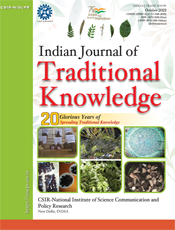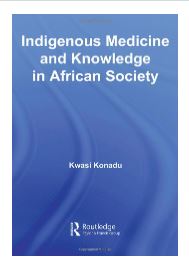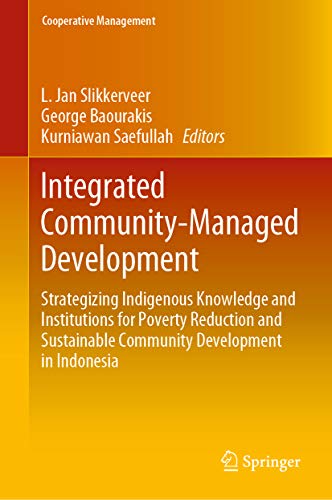Knowledge Hub
Opportunity assessment to strengthen collective land tenure rights in FCPF countries
2021
Author(s): World Bank
Communal land and forest tenure rights for Indigenous Peoples and local communities (IPLCs) is critical for the success of emission reduction program (ERP) implementation. This report discusses core findings about the nature and range of emergent opportunities associated with efforts to advance, strengthen, and leverage rights and presents the main opportunities in six selected countries.

Measuring Regional Ethnolinguistic Diversity in Sub-Saharan Africa: Surveys versus GIS
2020
Author(s): Gershman B, Rivera D
This paper compares two approaches to measuring subnational ethnolinguistic diversity in Sub-Saharan Africa, one based on censuses and large-scale population surveys and the other relying on the use of geographic information systems (GIS).

Journal of Ethnobiology and Ethnomedicine
2006
Publisher/Organisation: BioMed Central Ltd , Springer Nature
Research focusing on the implications that the inclusion of humanistic, cultural, and social dimensions have in understanding the biological word is also welcome, as well as its potential projections in public health-centred, nutritional, and environmental policies.
Fostering gender-transformative change in sustainable forest management: a case study of DGM Indonesia
2022
Author(s): Canpolat E, et.al
This case study informs the wider line of inquiry of the World Bank DGM & REDD+ Gender Study, which follows a conceptual framework of gender transformative change to analyze the contribution the DGM-I project is making to women's economic achievement, access to and control over productive assets, voice, and agency that support positive changes in women’s leadership and meaningful participation.
Amazon Sustainable Landscapes Program: Annual Conference 2021
2021
Author(s): Global Environment Facility
This report highlights the outcome of the Fourth ASL Conference held from November 17-18, 2021. ASL works to establish and strengthen networks of people and institutions to share ideas, lessons learned and innovations, accelerate learning, and generate/systematize/socialize knowledge at various levels and for diverse audiences. The ASL Annual Conference is designed to be the largest gathering of the ASL community.

Indian Journal of Traditional Knowledge (IJTK)
2002
Publisher/Organisation: CSIR-National Institute of Science Communication and Policy Research (CSIR-NIScPR)
Traditional knowledge is valid and necessary, and awaits its currently relevant wider application for human benefit. National Institute of Science Communication and Policy Research (erstwhile NISCAIR), CSIR felt a need to document the recent developments and the information bygone in this area in the form of an interdisciplinary periodical.

This groundbreaking study of indigenous knowledge has important implications for the study of medical and knowledge systems in Africa and the African Diaspora worldwide. By closely examining a range of multidisciplinary sources and utilizing fieldwork in the Takyiman district of central Ghana, the book contributes a new dimension to the study of health and healing systems in the African context.

Integrated Community-Managed Development
2019
Author(s): Slikkerveer JL, Baourakis G, Saefullah K., (Eds.)
This book provides a well- documented foundation for a new integrated community-managed development strategy for sustainable community development. It presents a practical guide for the strategy’s worldwide implementation to reduce poverty.
Empowering Indigenous Women to Integrate Traditional Knowledge and Practices in Climate Action
2021
Author(s): The Climate Investment Funds (CIF)
The present study contributes to filling a knowledge gap on gender dimensions of TKT, particularly with understanding IPLC women’s TKT and barriers and enabling factors to integrate their TKT in conventional climate solutions.
Empowering Indigenous Women to Integrate Traditional Knowledge and Practices in Climate Action
2021
Author(s): Climate Investment Funds
This study illustrates that Indigenous Peoples and Local Communities (IPLCs) women are important agents of change for climate action and have been using their Traditional Knowledge and Technology (TKT) to build the resilience of their communities to climate and other shocks. It also reviews examples of good practices in terms of initiatives that have supported gender-responsive integration of TKT and empowerment of IPLC women in the context of climate change. This study was jointly produced by the Stakeholder Engagement and Gender Teams of the Climate Investment Funds.



